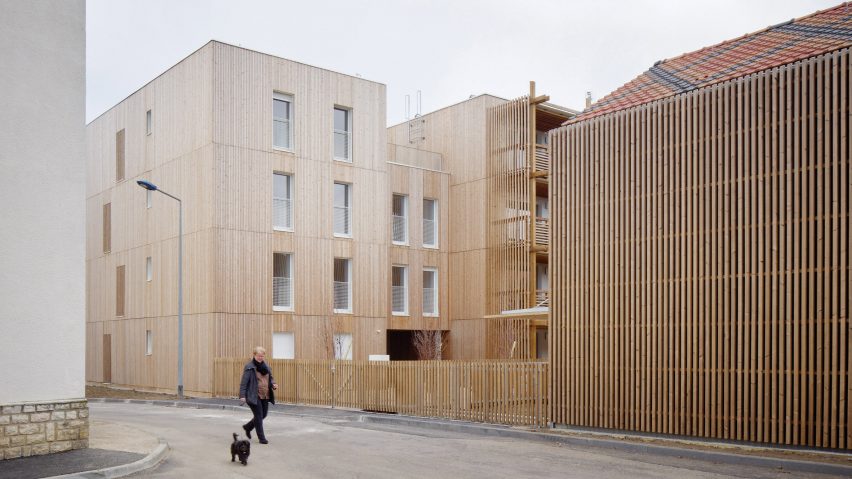The French government has announced plans for a sustainability law that will ensure all new public buildings are built from at least 50 per cent timber or other natural materials.
The measure will be implemented by 2022 and affect all public buildings financed by the French state, according to Agence France-Presse (AFP).
"I impose on all the public establishments which depend on me and which make the development or the policy of land to build buildings with materials which are at least 50 per cent of wood or bio-based materials," the country's minister for cities and housing Julien Denormandie told the French news agency.
Bio-based materials are made from matter derived from living organisms, with examples including hemp and straw.
Like wood, they have a significantly lower embodied carbon footprint compared to other construction materials like concrete and steel.
"We made this commitment for the Olympic Games"
The proposal aligns with France's Sustainable City plan launched in 2009, and also president Emmanuel Macron's drive for the country to be carbon-neutral by 2050.
The comment by Denormandie to AFP was made following his seminar at the Living in the city of tomorrow event at UNESCO on February 5.
During the event, he explained that his decision to introduce the law encouraging the use of bio-based materials was informed by the construction of the 2024 Paris Olympics complex. Any building in the development that rises more than eight storeys will be built entirely from timber.
"We made this commitment for the Olympic Games," Denormandie said, reported Le Figaro. "There is no reason why what is possible for the Olympic Games should not be possible for the usual constructions."
100 urban farms to be built in city suburbs
According to Denormandie, the French government will also invest €20 million (£16.8 million) for the imminent construction of 100 urban farms in city suburbs.
The farms are set to be built in priority neighbourhoods – designated areas within cities that need additional investment to combat specific problems. The hope is to create greener suburbs across France and introduce more opportunity for locally grown produce.
"As a father, I prefer that what is on my children's plates come from the local area, rather than being imported on a plane," Denormandie said.
Architects Populous and engineers Egis first revealed the masterplan for the 2024 Paris Olympic Games in 2017. In recognition of the city's commitment to tackling climate change, the proposal is hoped to be the most sustainable Olympics yet.
It will make use of a number of existing buildings in the city, and see temporary venues installed in front of some of the capital's most famous attractions.
News follows other sustainable construction initiatives
Denormandie's plans to make France's construction industry more sustainable follows a number of other eco-friendly initiatives in recent months, in response to the growing effects of climate change.
Last year, Paris revealed its plans to go green by planting "urban forest" around architectural landmarks, and in the UK RIBA published the Sustainable Outcomes Guide to help its members and the wider architecture industry avert the climate disaster.
Elsewhere, Foster + Partners' introduced a sustainability manifesto that will go beyond current environmental certification schemes, and Snøhetta pledged it will make all of its buildings carbon negative within 20 years.
Main photo is by David Foessel.

